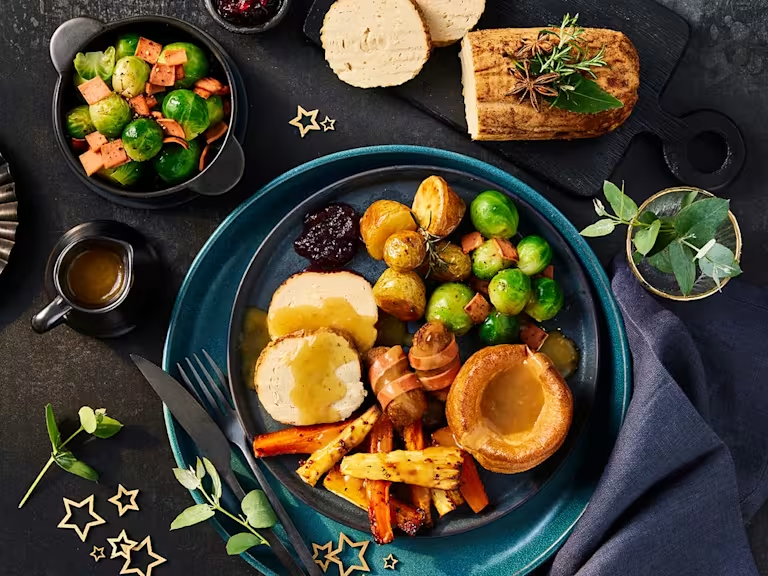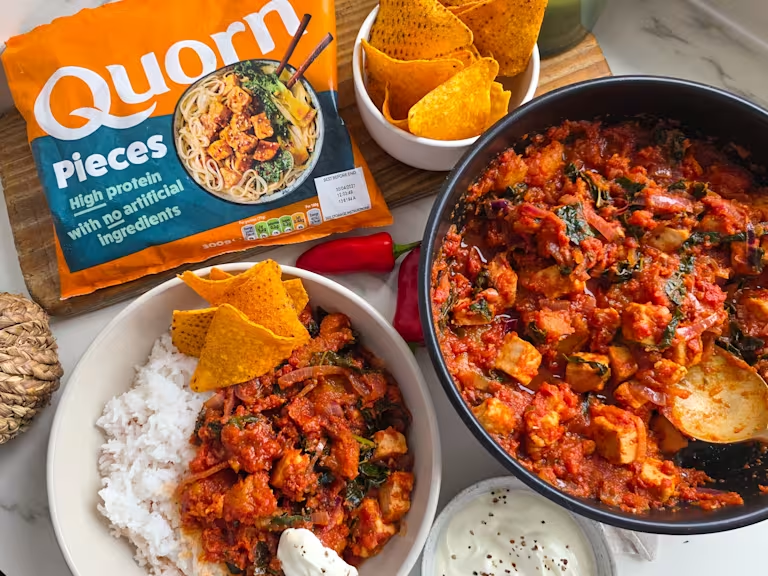
Top tips for cooking on a budget
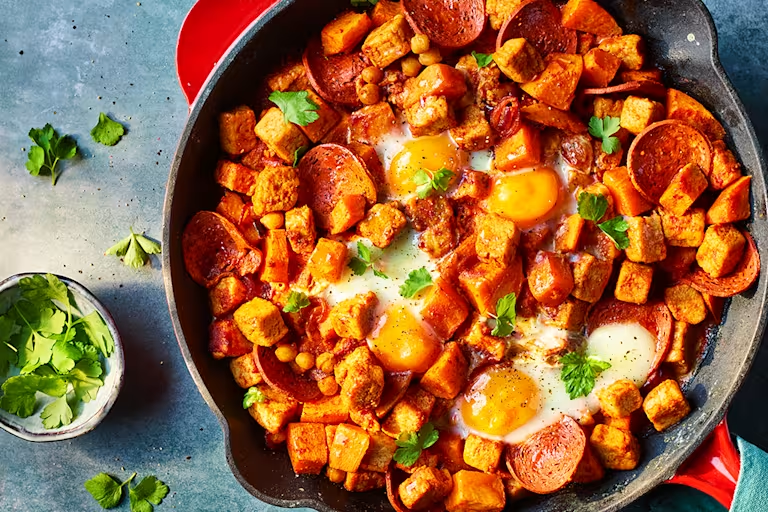
Cooking on a budget doesn’t mean you can’t eat healthy, tasty meals. In fact, going flexitarian and reducing the amount of meat you consume could save you up to 14% in food costs. Studies have also shown that going veggie or vegan could see you reduce your food costs even further by up to one-third.
Whether you’re looking for inspiration for cheap dinner ideas or simply want to be smarter with your monthly food budget, we’ve collected a selection of our favourite tips for cooking on a budget.
Read on to find out more.
The best budget dinner ideas always start with planning. If you’re looking for a simple way to save money on your food shop, consider creating a weekly menu that you can stick to. Deciding what you want to make ahead of time means you can price up how much each meal will cost. It can also help you to avoid impulsively buying expensive fast food and reduce food waste.
Plan a weekly menu with some budget dinner ideas
If you can, look for discounts or deals to help stretch your pounds that bit further. Sometimes a little research can go a long way. Discounts might be promoted online, or vouchers can be found and used to help cut costs.
It also helps to know what you already have at the back of the cupboards. Be sure to check the cabinets properly and make a note of what’s hidden behind those tins! You might find an ingredient you were planning on buying or something you can work into a recipe and save yourself from over shopping.

If you’re struggling for ideas, check out our cheap family recipes. Speaking of families, why not get everyone in the house involved? A weekly food plan can be a great way to share ideas about food and teach kids some essential cooking skills and budgeting know-how.
Put leftovers to good use
Leftovers don’t have to mean wasted food. There’s always the option of saving a portion of your dinner for lunch the next day. But what if you’re dealing with leftover ingredients? Fortunately, there’s also plenty of ways you can use your leftovers to create or enhance your meals.
Creativity is key, and experimenting with a handful of spices can change entire dishes. Say you boiled new potatoes for a Sunday dinner but made too many. Why not save some and create Bombay potatoes with a splash of oil and a dash of spices the next day before serving them with a budget-friendly Quorn Tikka Masala?
If you’ve got some leftover veg from a salad, a soup can turn almost anything into a hearty, cheap dinner recipe. Similarly, there‘s such a variety of pasta dishes that no matter your leftovers, you’ll be able to whip them up into an Italian feast! You can also check out our zero-waste recipes for inspiration.
Start batch cooking on a budget

Buying ingredients you know you’ll always use, such as pasta and rice, in bulk can be a great way to cut long-term costs. Not only that, but cooking in large batches can also help save time and money throughout the week, as it means you don’t have to use as much gas and electricity.
Try to create three simple but delicious batch meals on Sunday that you can enjoy throughout the week. Traybakes, one-pot dishes, and casseroles can all be cooked without requiring much fuss and can keep until the following week.
Use your kitchen space smartly
Knowing how to store your food appropriately is essential if you’re already making the most of your leftovers and dabbling with batch cooking. If you plan on making batch meals to last you through the week, storing them in sealed containers in the fridge or freezer is the best way to ensure they stay fresh and edible.
If some foods, such as bread or fresh herbs, look like they might turn bad before you can use them, your freezer can help keep them fresh until you need them. For bread, consider putting half a sliced loaf in the freezer and toast slices as and when you need them. If your herbs are starting to wilt, pre-chop them before freezing them in a small bag. Whether you need a pinch or a bunch, simply pull them out of the bag and add them to your dish.
Lastly, be sure to keep your spice rack well-stocked. Even if you’re cutting down on expensive sauces while cooking on a budget, you can bring most dishes to life with a sprinkling of dried herbs and spices.
Cook seasonally
Even in the age of global trade, you can still save money by buying food that’s in season. Not only is it better for the environment, but it’s better for your bank balance too. Think leafy greens and root vegetables in winter, crisp salad veg in spring, summers filled with berries and beans, and autumns featuring tomatoes, squashes, and apples.
There’s plenty to choose from at any given time of year, and while you can still buy strawberries in December, you’ll probably find them cheaper (and tastier) in August. If you’re looking for seasonal salad recipes, we’ve got you covered. Likewise, if the weather’s turned colder, and you’re looking for some warming, winter recipes, something like this herb crusted Quorn Vegetarian Roast features seasonal vegetables that are sure to hit the spot.
Don’t be afraid to swap out ingredients
Cooking is an art, and creativity in the kitchen will take you a long way. Luckily, you can apply this creativity to cooking on a budget. As you’re planning your meals, think about how you can save money by using cheaper ingredients, or utilising what you’ve already got.
Trying out new dishes, exploring how foods work together, and how spices can turn a meal on its head can widen your culinary tastes and save you money. If you find a recipe that uses a small amount of a specific ingredient that you’re unlikely to use again, try swapping it out for something else. Likewise, if a meal calls for an expensive cut of meat, try using Quorn, beans, or vegetables as a more budget-friendly alternative. Get experimental and you may discover a new favourite dish!
Pick imperfect vegetables
When you’re tucking into a plate of Quorn Sausages and mash, you’re probably not thinking about how the potato looked before you peeled it. In fact, cooked veg rarely resembles the whole vegetable you picked up in the supermarket.
It might seem odd, then, that supermarkets sell ‘wonky’ or misshapen veg cheaper than regular vegetables. Imperfect veg is just as tasty and good for you, making it a great option for those on a budget. It’s also worth keeping an eye on best-before dates because fresh fruit and veg close to their dates can sometimes be cheaper.
Pad recipes out with pulses and grains

A cheap and easy way to make a meal go further or save money without buying double the ingredients is to use pulses and grains to your advantage. Both have a long shelf life, are available in dried or ready-to-use forms, and can be bought in bulk.
Perfect for padding out a meal of any size, pulses and grains are the key ingredients behind any healthy, cheap dinner idea. Whether it’s a tin of lentils or a packet of instant cous-cous, they can be a quick, easy, and effective way to build out your meals without compromising on taste.
For example, kidney beans can be the perfect addition if you’re making a Quorn Chilli. Meanwhile, salads can sit on a base of quinoa for added texture and flavour, and you can pack added protein into any curry with the help of lentils!
Get growing
Why pay for food when you can grow it yourself? Growing your own fruit, veg and produce can be fun, easy, and educational.
You don‘t need a big garden or an allotment either. Plenty of things, such as tomatoes or herbs, can thrive on sunny windowsills. It’s also a wonderful way to get the whole family involved and learn more about where food comes from. Head to your local garden centre and see what suits your space and family.
Hopefully you can see that with a little bit of planning before your weekly shop and some experimenting with dishes in the kitchen, you can enjoy budget-friendly meals full of flavour. Be sure to check out our recipes for more inspiration.
Recent news
All news
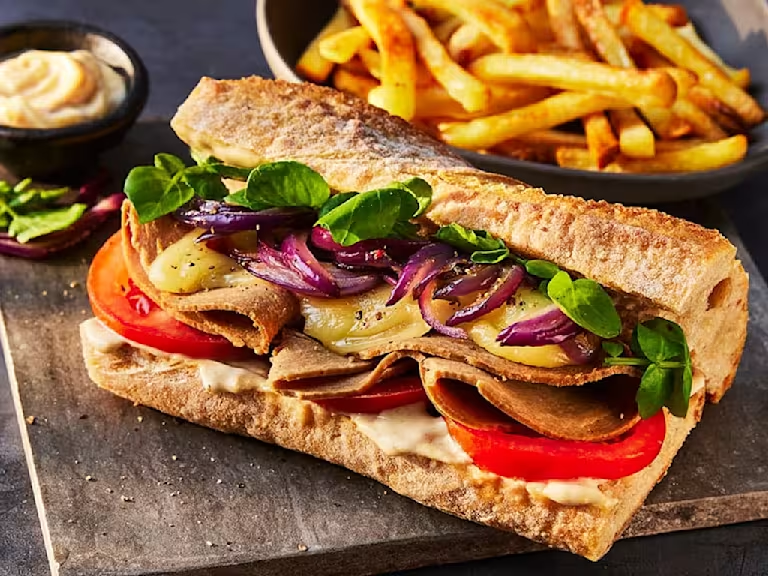
The Ultimate Sandwich Guide
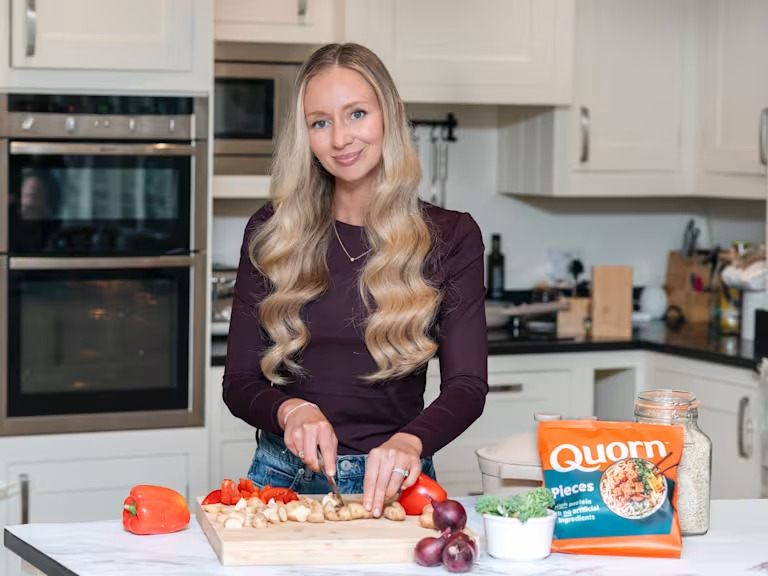

Sustainability WINNERS – FDF Awards 2025
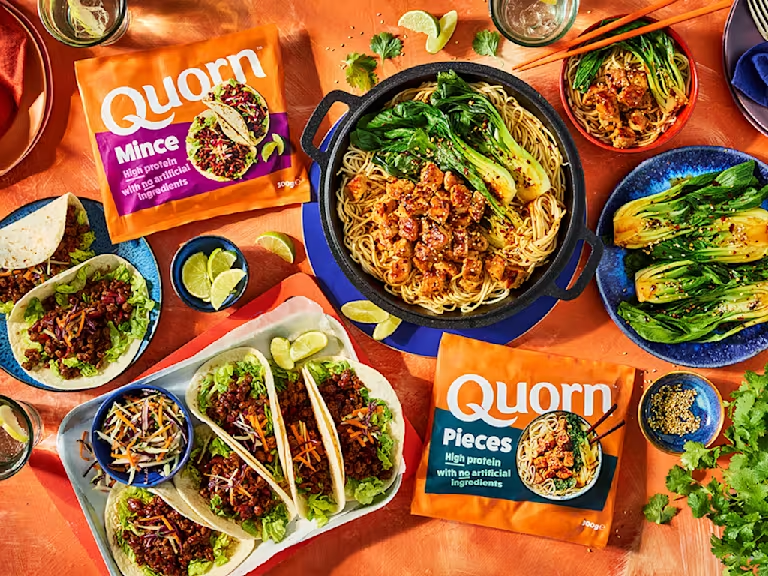
No Artificial Ingredients
